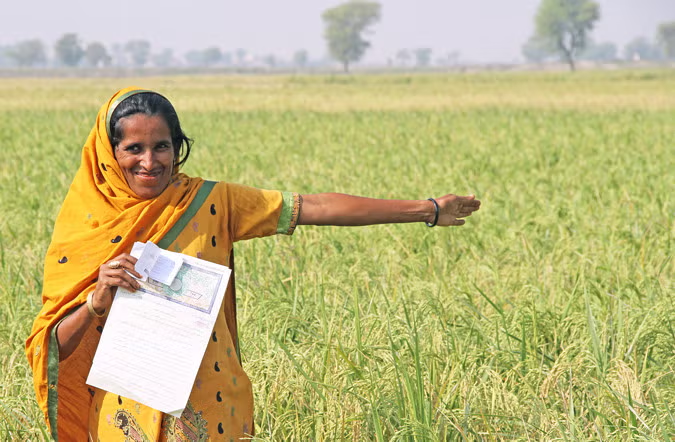
Protecting Your Property Rights While You Live Abroad
For overseas Pakistanis, property ownership in Pakistan can be a valuable asset but also a major challenge due to issues like illegal occupation, fraud, family disputes, and delayed property transfers. Many people struggle to manage their land, homes, or commercial properties from abroad, leading to legal complications.
At NRP Legal Solutions, we specialize in handling property legal matters for overseas Pakistanis. Our expert legal team ensures your property remains secure, disputes are resolved, and your rights are enforced—without the need for you to travel.
Our Property Legal Services
1️⃣ Illegal Possession & Encroachment Cases
If someone has occupied your land or house illegally, we take legal action to:
🏠 Evict illegal occupants & squatters
⚖️ File property recovery lawsuits
🔍 Investigate fraud & fake claims
2️⃣ Property Title Verification & Documentation
Before buying or selling property, it’s essential to ensure the title and documents are 100% legal. We help with:
✅ Title deed verification to confirm true ownership
✅ Checking property for legal disputes before purchase
✅ Drafting & registering property sale agreements
3️⃣ Inheritance & Succession Disputes
Many overseas Pakistanis face difficulties in claiming their rightful share of inherited property. We assist with:
📜 Legal division & transfer of inherited property
👨⚖️ Court representation for succession disputes
🔍 Preventing fraud & illegal sales of inherited assets
4️⃣ Property Sale & Purchase Legal Support
When buying or selling property from abroad, you need legal protection to avoid fraud. We handle:
🏡 Drafting legal sale agreements
📑 Ensuring property ownership transfer
💰 Preventing financial scams in property transactions
5️⃣ Rent & Lease Disputes
If you rent out your property, tenants refusing to pay rent or vacate can be a huge issue. We help with:
📄 Drafting legally binding rental agreements
🚪 Evicting tenants who refuse to leave
⚖️ Filing rent recovery claims in court


Why Choose NRP Legal Solutions?
✔ Expert Property Lawyers – Specialists in handling real estate legal issues for overseas Pakistanis
✔ No Need to Travel – We handle everything remotely, keeping you informed every step of the way
✔ Quick & Efficient Solutions – We aim for fast legal resolutions to prevent lengthy delays
✔ Fraud Prevention & Legal Protection – We ensure your property remains safe from illegal claims
✔ Transparent & Honest Legal Advice – No hidden fees, just reliable legal support
Property / Plot Registry Procedure in Sindh.
A registry is a written agreement on official stamp papers between parties for sale and purchase of a property.
If you have recently purchased a property in any city of Sindh province
(Karachi, Hyderabad, Sukkur, Larkana….)
and now want to get it registered on your name. For the registry of land, plot or flat you will have to go with the seller of the property to the sub-registrar branch of the concerned authority i.e. DHA, KDA etc
to register the property in your name.
Earlier we have discussed registry procedure in Punjab in another post.
Procedure in all provinces of Pakistan is almost similar but the type of documents required may vary from place to place.
In Sindh – Documents required for Registry in Karachi.
You will need several documents and follow a certain procedure for land or property registry. In the following lines, you can find the detail guidelines for registry in Karachi. You need following documents to register a property in your name in Province of Sindh, Pakistan:
Title Deed (evidence of the right which an owner has to possess his/her property)
Sale Deed – if there is subsequent transaction (A case decree must be attached if the property’s ownership has been disputed)
Gift Deed (if the property is gifted)
Exchange Deed (if the property is acquired in exchange)
Copies of your CNIC and passport-sized photographs
Copies of the seller’s CNIC and passport-sized photographs
A Mutation Certificate, issued by a land-owning authority, such as the DHA, KDA etc.
This certificate provides details about the property, such as its current registration status, previous owner’s name and pending dues (if any).
If the property has been purchased via a bank loan, then a permission letter is required from the band to verify that the loan has been provided.
If the loan has been paid in full, a NOC from the bank is required; two representatives from the bank should be present at the time of registering the property in this case.
A Trust Deed NOC from the Ministry of Religious Affairs is required if the property has been purchased to construct a religious building.
A NOC from the Home Department is required if the buyer or seller is a foreigner.
Receipts that prove that relevant taxes have been paid. These may include advance income tax, town tax, gain tax, capital gain tax and stamp duty.
Remember, registration fees have to be paid at the time of registration and usually amount to one percent of the property value and varies according to the type of property and the area where it is located.
.
In Sindh Documents required for Hyderabad and Mirpur Khas Division:
A. Freehold properties (Rural Areas)
L-20, Ownership Certificate duly issued by the Taluka Mukhtiarkar or Sanad
Deh Form-VII
Deh Form-II (Mutation)
B. Free Hold Property (Urban Areas)
P.T.O./P.T.D/Sale Deed/Gift Deed
City Survey Extract/Deh Form-II (Mutation)
A statement issued by the Legal Heirs along with a copy of statement from City Survey in cases of heirship
C. Lease Hold Property
Lease Deed/Sub-Lease Deed/Sale Deed/Gift Deed
Deh Form-II (Mutation)
Allotment order
D. Cantonment Areas
Lease Deed
Extract of the Property
In Sindh
Documents required for Sukkur/ Larkana/ Jacobabad/ Dadu/ Khairpur:
A. Urban Area
Sale Deed
P.T..D/P.T.O
F.T.O.
Gift deed
Lease Deed/Sub-lease deed
City Survey Extract
Deh Form-II
Deh Form-VII
Mutation
B. Rural Area
Owner Ship Certificates issued by Union Council Authorities
Owner Ship Certificate issued by Mukhtiarkar concerned
Deh Form-II
Above detail is given just as guidelines for the buyer and seller of the property.
